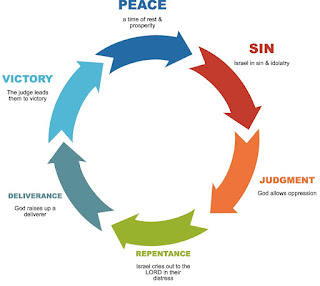Day 90: Judges 20-21
There’s a lot to think about on Day 90 of the Bible reading plan as we complete Judges and section that maintains parity between the Hebrew Canon and traditional Protestant Canon. How did it get to the point of near-extermination of one of the tribes of Israel? (As the people asked in Judges 21:3) We have to imagine that this is the result of: Winning the war but losing the peace ( Day 83 ) Failing to thoroughly pass along their laws and experiences ( Day 74 ), leading to ignorance about: The penalty for rapists (Deuteronomy 22:20-26), homosexuals (Leviticus 18:22-30) and what a city is to do with the accused when a murder inquest is made (Deuteronomy 19:12-13). The fall of Sodom in Genesis 18, which mirrors the beginning of this story. The fall of Ai in Joshua 5, which mirrors the ending of this story. Joshua’s generalization of the principle learned at Ai, expressed in Joshua 22:11-20 on the occasion of their construction of a memorial altar at the border of the Promised Lan...
